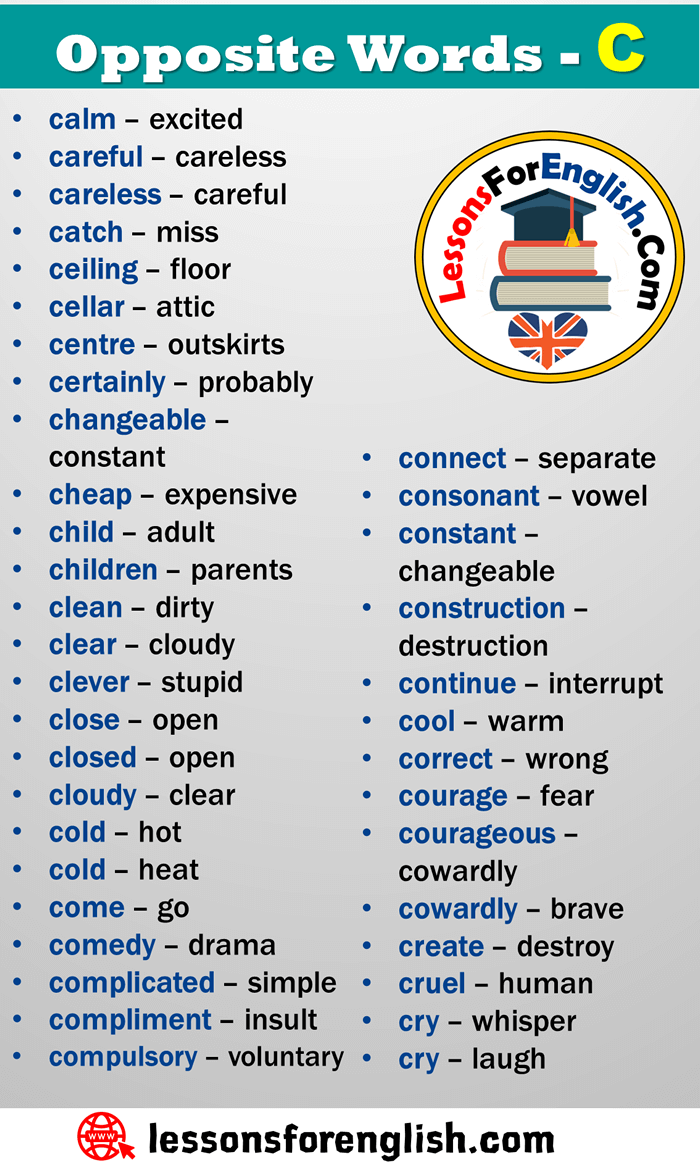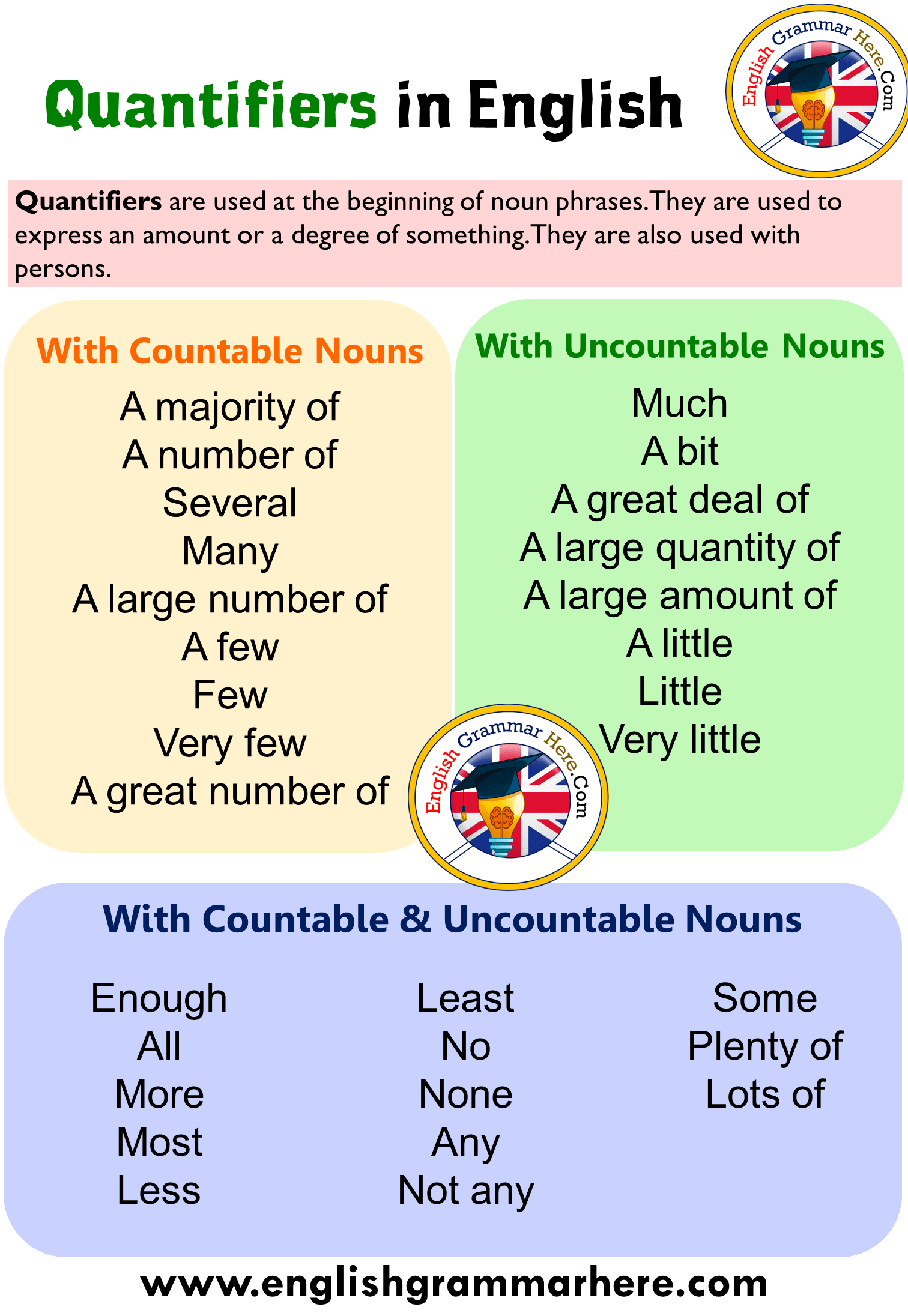- Clear Explanation About English Quantifiers Pdf Free
- Clear Explanation About English Quantifiers Pdf Format
- Clear Explanation About English Quantifiers Pdf Download
Much is used with singular nouns; many is used with plural nouns.
QUANTIFIERS QU 1 Fill in: much, many, lots of, a lot of, little, most, a little, little, a few, few. It seems we have had a lot of, many, lots of assignments in English this year. How much do we have to read this week? Most, Many, A lot of Americans don’t like George Bush 4. There aren’t very many books in the library. Download Free PDF. Download Free PDF. Ways of branching quantifers. Linguistics and Philosophy, 1990. Quantifiers in Dependency Tree Semantics. By Livio Robaldo. Quantifiers, Camille C. Hanlon conducted an experiment on how children learning American English as a first language use quantifiers, such as all, some, none, each, etc. And demonstrated the pattern that we will see replicated across the literature. By analyzing the cognitive. Quantifiers: worksheets pdf, handouts to print - quantity words. Printable exercises. Many - much - a lot of - few - little - less - fewer - more. Quantifier variance holds that different languages can have unrestricted quantifier expressions that differ in meaning, where an expression is a “quantifier” just in case it plays the right inferential role. Several critics argued that J.H. Harris’s “collapse” argument refutes variance by showing that identity of inferential role is incompatible with meaning variance.
There isn’t much food in the house. (NOT There isn’t many food in the house.)
You have given me too much cheese.
Were there many people at the meeting? (NOT Were there much people at the meeting?)
I have had as much trouble as I can bear.
She hasn’t got many friends.
Much and many can be used as noun phrases before determiners.
You didn’t eat much breakfast.
There aren’t many eggs left.
Before pronouns and a noun with a determiner (articles, possessives, demonstratives) we use many of or much of.
How much of the roof needs repairing? (NOT How much the roof needs repairing?)
How many of you are there? (NOT How many you are there?)
Much of can also be used before personal and geographical names.
Not much of Africa is developed.
Much and many can be used without a noun if the meaning is clear.
You have given me too much. I can’t eat it all. (= You have given me too much food.)
Did you find any strawberries? ‘Not many’
Not used in affirmative clauses
Much and many are unusual in affirmative clauses. Instead we use other words and expressions like plenty of, lots of, a lot of, a great deal of etc.
Compare:

I don’t have much work to do.
I have plenty of work to do. (More natural than ‘I have much work to do.’)
Were there many people at the meeting?
There were lots of people at the meeting.

Much is used with singular nouns; many is used with plural nouns.
There isn’t much food in the house. (NOT There isn’t many food in the house.)
You have given me too much cheese.
Were there many people at the meeting? (NOT Were there much people at the meeting?)
I have had as much trouble as I can bear.
She hasn’t got many friends.
Clear Explanation About English Quantifiers Pdf Free
Much and many can be used as noun phrases before determiners.
You didn’t eat much breakfast.
There aren’t many eggs left.
Before pronouns and a noun with a determiner (articles, possessives, demonstratives) we use many of or much of.
How much of the roof needs repairing? (NOT How much the roof needs repairing?)
How many of you are there? (NOT How many you are there?)
Clear Explanation About English Quantifiers Pdf Format
Much of can also be used before personal and geographical names.
Not much of Africa is developed.
Much and many can be used without a noun if the meaning is clear.
You have given me too much. I can’t eat it all. (= You have given me too much food.)
Did you find any strawberries? ‘Not many’
Not used in affirmative clauses
Much and many are unusual in affirmative clauses. Instead we use other words and expressions like plenty of, lots of, a lot of, a great deal of etc.
Compare:
Clear Explanation About English Quantifiers Pdf Download
I don’t have much work to do.
I have plenty of work to do. (More natural than ‘I have much work to do.’)
Were there many people at the meeting?
There were lots of people at the meeting.